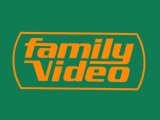Family Video Pays $70,000 as Part of Discrimination Settlement
Post Views 21Family Video, reputedly the largest privately-owned retailer of movies and video games in the U.S., has recently resolved a disability discrimination lawsuit. The action was brought against the company by the Equal Employment Opportunity Commission (EEOC) on behalf of a former sales associate.
The employee, who suffers from major depression and social anxiety disorder, was allegedly subjected to harassment due to his disability. When he complained of the harassment, he was fired. The EEOC filed the suit on March 1st of this year, claiming a violation of the Americans with Disabilities Act (ADA). The lawsuit was filed in the U.S. District Court for the Western District of New York following an unsuccessful attempt to conciliate the charge.
The EEOC and Family Video agreed to a three-year consent decree, in which the company will pay the former employee 70,000 dollars in monetary relief. The settlement also enjoins Family Video from further discrimination based on disability or any retaliation. The company will be required to hire an Equal Employment Opportunity coordinator to help realize discrimination policies and procedures, as well as provide training and monitor and investigate complaints relating to discrimination.
The ADA clearly defines “disability” as a “physical or mental impairment.” According to ADA guidelines, a mental impairment is “any mental or psychological disorder, such as… emotional or mental illness.” Such emotional or mental illnesses can include major depression, bipolar disorder, anxiety disorders (e.g., panic disorder, obsessive compulsive disorder, and post-traumatic stress), schizophrenia and personality disorders. Courts will often reference the most recent edition of the American Psychiatric Association (APA)’s Diagnostic and Statistical Manual of Mental Disorders in helping to identify disorders.
However, not every condition listed in APA’s manual is constituted as a disability or even an impairment. There are several conditions, in fact, that Congress deliberately excludes from the APA’s definition of “disability.” There are likewise conditions for which a person might seek treatment but which are not necessarily disorders. As they are not disorders, APA does not consider them impairments. In any case, the impairment must “significantly limit” one or more of an individual’s “major life activities” to be considered, by law, a disability.

EEOC trial attorney Judith Biltekoff, who handled the case, expressed the Commission’s satisfaction with the relief that the consent decree will provide. She stated that the decree “provides significant relief for [the former employee],” as well as “protections against discriminations for the employees of Family Video.”
Family Video Movie Club, Inc., based in Glenview, IL, has more than 735 stores spanning 19 states and employs over 7,000 people.
Family Video Pays $70,000 as Part of Discrimination Settlement by Harrison Barnes



 Top Trends in Human Resources
Top Trends in Human Resources  The Most Popular 20 Employer Articles for Gig in 2015
The Most Popular 20 Employer Articles for Gig in 2015  5 Ways You Can Hire and Keep the Best Employees for Your Company
5 Ways You Can Hire and Keep the Best Employees for Your Company  What to Ask during a Performance Review
What to Ask during a Performance Review  What Does It Actually Cost to Hire a New Employee?
What Does It Actually Cost to Hire a New Employee?  6 Ways to Make Your Employees Happier
6 Ways to Make Your Employees Happier  How to Deal with Negative Employees
How to Deal with Negative Employees